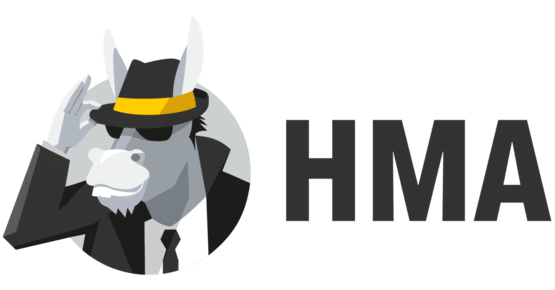Download the Fastest VPN for OS In Ethiopia
- Access to Geo-Restricted Content in Ethiopia
- Protect up to 6 Devices with One Account
- 30-day Money Back Guarantee
- 3 Minute Setup & Ultra Easy-to-use
- Unlimited Bandwidth & Speeds
- Military Grade Encryption & Premium Features
- Available on:
Windows
Mac
iOS
Android
Linux
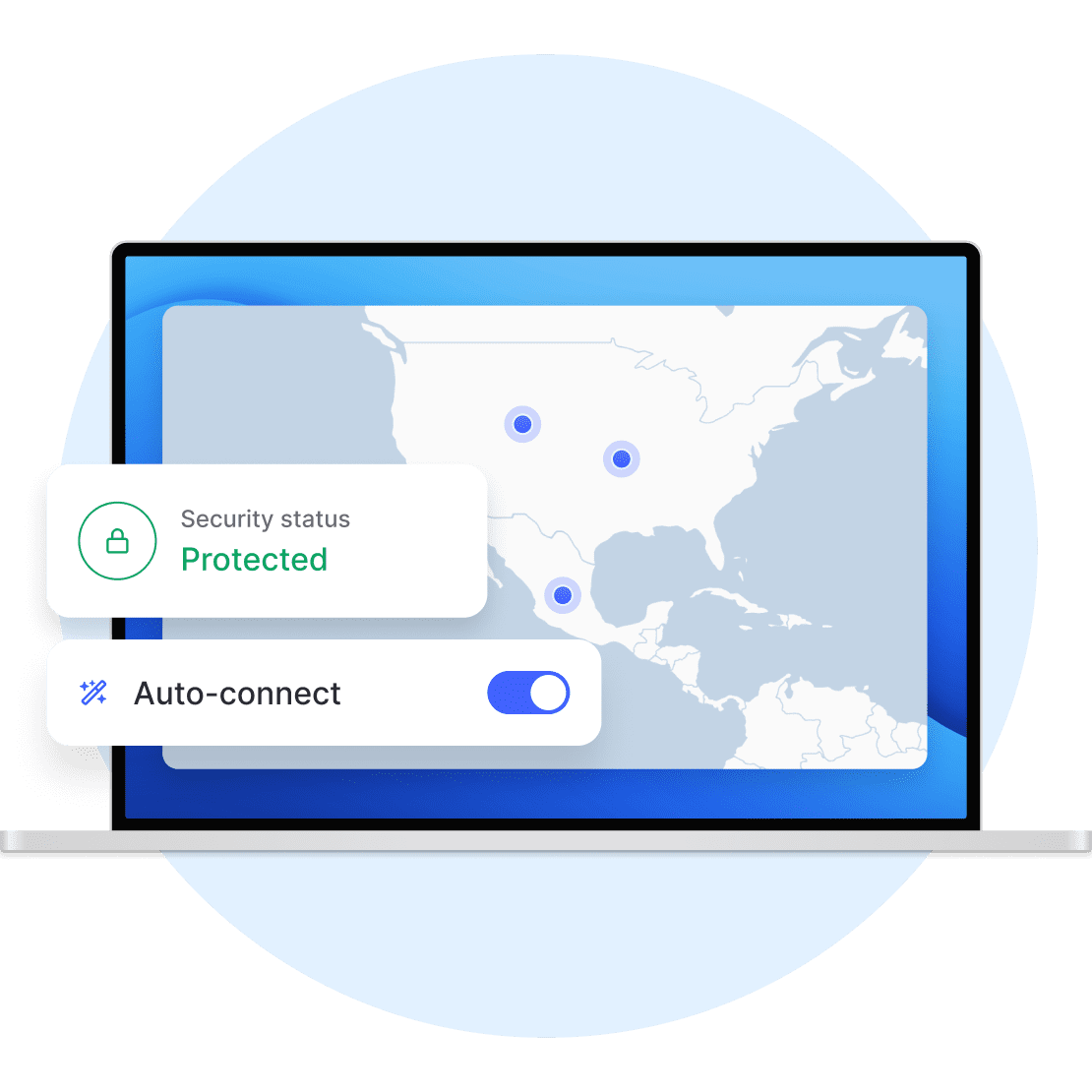
![Top Ethiopia VPN in [year]](https://cdn.vpn.com/wp-content/uploads/nord-logo-horizontal-white@1x-300x66-1.png)
VPN.com Rating
#1
Overall Score
4.9
# of Devices
6 at once
Top Ethiopia VPN in 2024
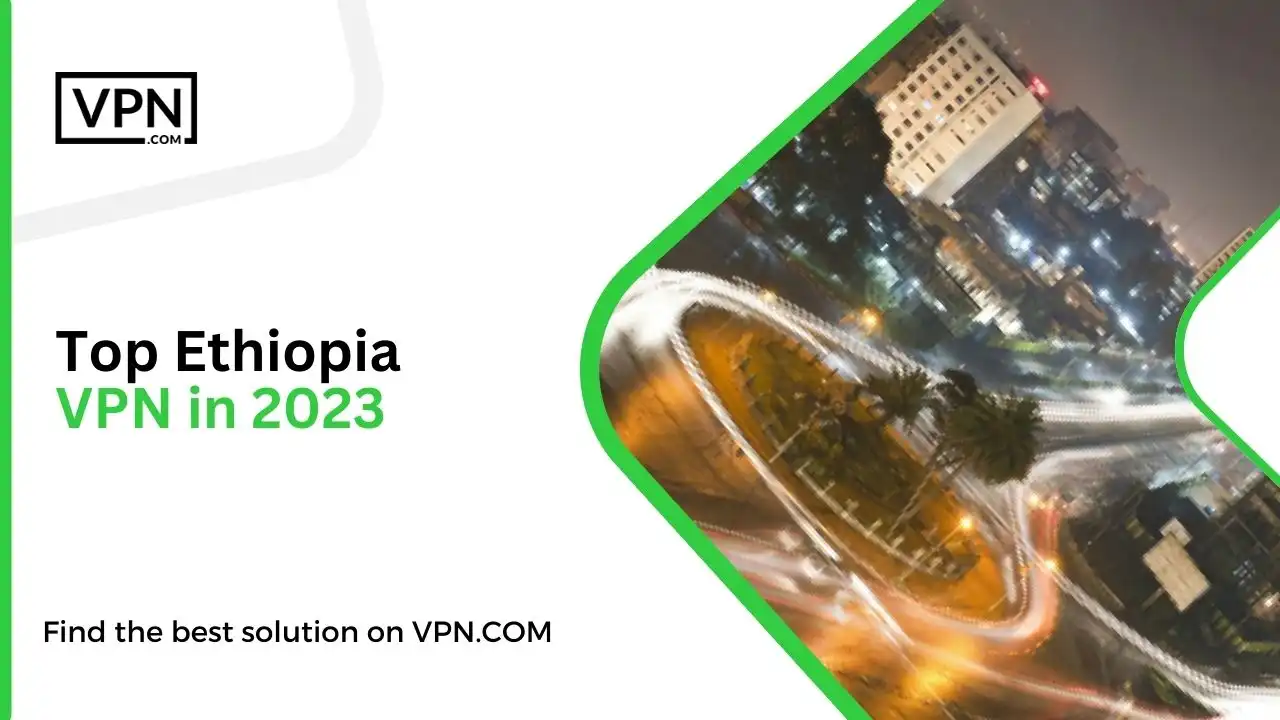
Situated in Eastern Africa, Ethiopia is an ancient independent country in Africa. Although the population of this country is near about 107 million people, only 11.5 million people use the Internet. Moreover, according to an estimation, there are approximately 18 million mobile phones in Ethiopia.
The Ethiopian economy is one of the fastest-growing economies in the world. Its population is also the second largest around the globe. Many industries in Ethiopia belong to the private sector or are in the process of privatization.
However, the telecommunication department is under the charge of the state because it’s a type of strategic sector. Consequently, the non-coastal country of Ethiopia has very strict online blackout policies in its region. Internet connectivity is also constantly unstable because it’s held by the government.
Using a VPN in Ethiopia will give you a sense of privacy and security. Here citizens have started using VPNs due to privacy concerns and to avoid government restrictions. Political sites are often ceased and columnists manage their reports themselves. In this article, there is a complete explanation of why you should use a VPN in Ethiopia.
Is It Legal To Use a VPN in Ethiopia?
VPNs are totally legal in Ethiopia but the problem is associated with the content or services you want to access using a VPN. If you use a low-quality VPN to overcome a restricted site and the government detects you, you will be in trouble. So, using a high-value and strong VPN is necessary.
It’s also significant to know that all voice-over-Internet protocol services (VOIP) are banned in Ethiopia This ban on Skype, Google Talk, and other VOIP services was legally enforced in 2012.

Get Started w/ NordVPN Today
- Top-rated VPN for OS unknown
- Ultra-fast speed in US in 2024
- Save 69% off with VPN.com Discount
- Plans starting at $2.99/month
- Rated 4.5/5 on Google Play with over 825,000 reviews
- Rated 4.7/5 on Apple App Store from 6,600 users
Why Use a VPN in Ethiopia?
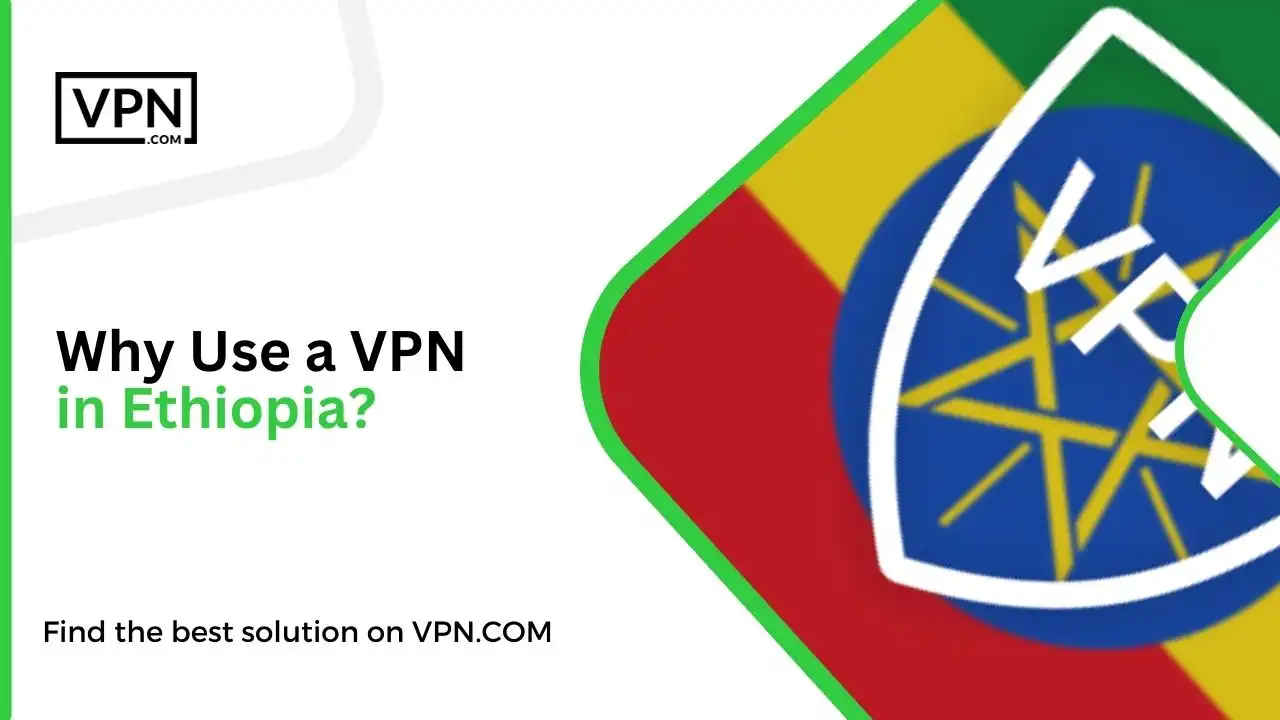
There could be many reasons to use a VPN in Ethiopia. However, some of the considerable reasons are as follows:
Digital Privacy Rights
The Ethiopian government pays special heed to censorship. There is a continuous struggle to block unnecessary information from entering the public region. Theoretically, some data protection strategies are set for Ethiopian natives.
However, the problem is that there are no proper legal rules that specifically deal with data protection. Some measures are taken but the rules are implemented in the form of small sections of governmental laws. Therefore, there is a rising concern that the country has no proper strategy to overcome cybersecurity threats.
A VPN is capable of protecting your information, especially in a situation where preventive measures are not strong at the government level.
Censorship
Social media and adult sites are not banned in Ethiopia. One can also use Private Bay there. But the country has been declared as “not free” by Freedom on the Net many times in the past years. Social media sites are often blocked resulting in anti-government disputes. Thus, Ethiopia is also known as the enemy of the Internet.
Reporters Without Borders organization marks countries as enemies of the internet if they ban access through censorship and supervision.
Protection of Public Wi-Fi
There are 11,221 free Wi-Fi hotspots in the capital city of Addis Ababa. While this feature offers a massive population easy access to the Internet, public WiFi gives rise to serious security threats.
One issue is the oversight of the government (as we told you before, they strictly monitor internet activities). The second is that hackers can easily steal information through these networks. Hackers hide between your device and the network you want to connect with.
Any information that you transfer can be stolen before it reaches its final destination. By activating a VPN on your mobile phone, you are adding a protective layer of cybersecurity.
Data Collection
There is nothing wrong in assuming that the Ethiopian government is collecting user information. In the same way, the government takes strict measures to justify its censoring point of view. The Information Network Security Agency (INSA) traced Ethiopian journalists who live in the United States.
ISPs are managed by the government which means that they are also gathering your information. Private control of Internet access is maintained by Ethio Telecom and the Ethiopian Telecommunication Agency (ETA).
So, if you are one of those 5.8 million Ethiopian people who use Facebook, we suggest you use a VPN to protect your confidential information.
Dangers of VPN Usage in Ethiopia
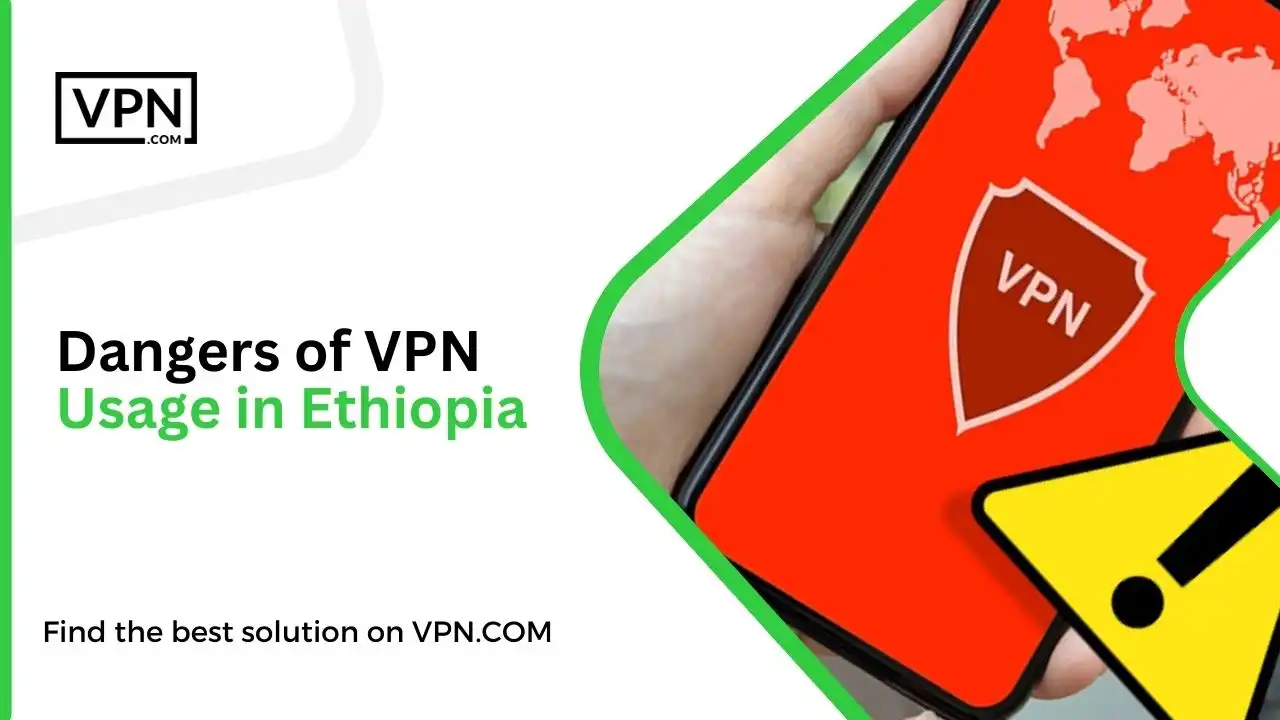
If you live in Ethiopia, you must be aware of all types of internet restrictions. Since 2015, the Ethiopian government has applied brutal tactics to hold political and social disturbance back in response to anti-government protests. Demonstrators and bloggers were arrested due to fake terrorism charges many times. Moreover, famous social media platforms like Facebook and Twitter were banned on many occasions. So, censorship and surveillance are very common and the results of being caught using a VPN are also unpredictable.
Luckily, the conditions in Ethiopia reformed after the resignation of former Prime Minister Hailemariam Desalegn in February 2018. The bail of arrested bloggers and the selection of Abiy Ahmed have resulted in the end of dictatorship and the implementation of democratic improvements. Besides all this, Ethiopia still has a lot of restrictive laws that give the government extreme observation power and limit the freedom of speech.
A VPN allows you to overcome internet blockage and get access to social media sites, the latest Ethiopian websites, and political party sites without any hindrance. Similarly, the best VPNs in Ethiopia prevent you from extensive government oversight. The Computer Crime Proclamation allows online inspection and interruption in communications and it’s not the end. The law requires ISPs to record communications and metadata at least for one year.
By selecting a good VPN that makes use of encryption and conceals your IP address to protect your data from hackers, you can explore the web without any hurdles. Make sure that you select a VPN with a safe no-log policy so that no one can find your online activity. In short, you require a VPN in Ethiopia to access restricted services, maintain privacy, and avoid anonymity.
The location of the VPN server is also important. Although PureVPN offers some virtual servers in Ethiopia. But it only helps in getting access to local sites and services. So, if you access the internet with an IP address located outside Ethiopia, it will help you avoid many regulations implemented in the region and get access to offshore content.
Internet Speed and VPN Accessibility
Ethiopia is in the 94th position out of 190 countries if assessed on the basis of average connection speed on mobile phones. The standard download speed is 20.93 megabits per second (Mbps) while the average upload speed is 11.28 Mbps.
Ethiopia ranks 150 out of 190 countries in the race for fixed broadband Internet. The standard download speed is 11.42 Mbps while the average upload speed is 17.50 Mbps. So, a VPN is required to enhance the internet speed too.
How to Find a Good VPN Provider?
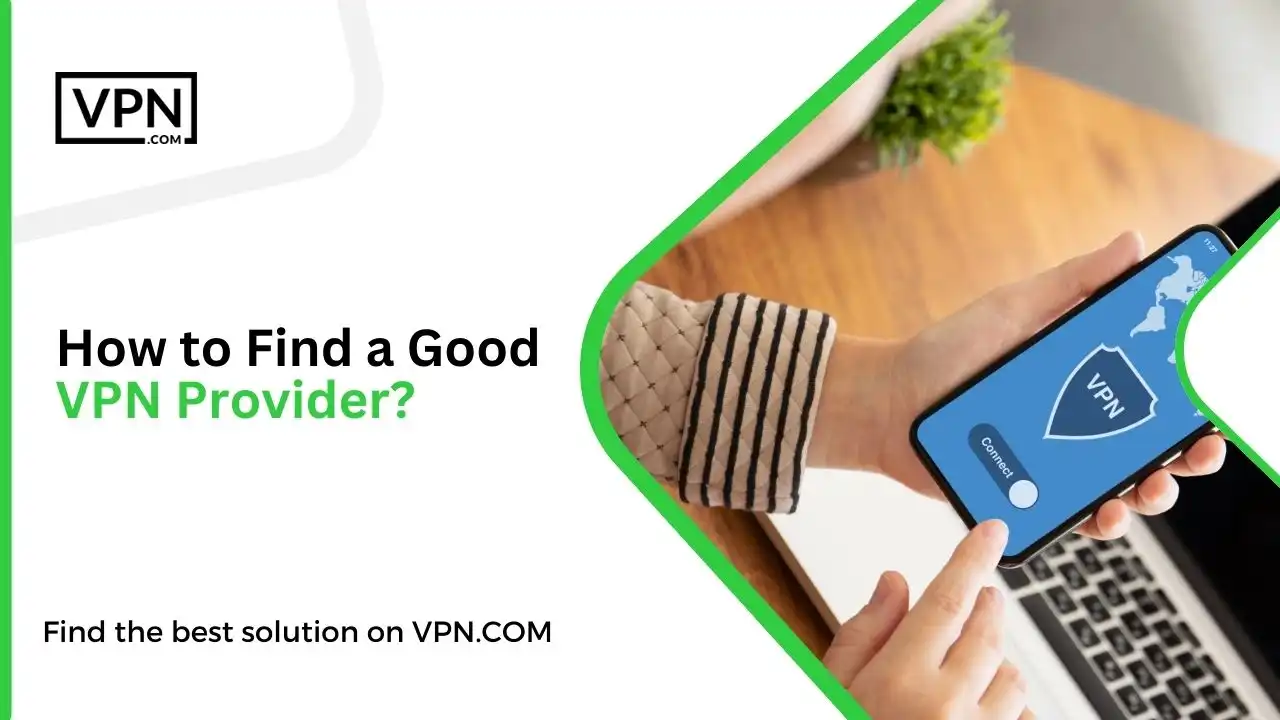
Although VPN.com is the best VPN provider. It works to provide its customers with high-quality VPNs with strong servers that can bear the strict data retention policy of Ethiopia. But most people ask about the qualities to look for in a VPN. So here are some things to consider.
Fast connection speeds and dependable service. Now you know that the internet speed in Ethiopia is already low. A low-quality VPN that provides slow connection speeds delays your work even more. Free VPNs are irritating but if you want a reliable and secure connection in Ethiopia, it’s better to go for a paid option.
No-logging policy. Many VPNs do not save user information. However, some providers record it to avoid any future inconvenience. Based on the location of the VPN, they might not require logging information legally. For example, in Panama, there is no law enforcement for saving user information. Ethiopia has strict policies regarding VPNs so choose the one that doesn’t record your personal information.
Capable of unblocking geo-restricted sites. Streaming libraries vary to a large extent around the globe. The reason behind this variation is the distribution and licensing agreements. So, if you want to watch Netflix, Hulu shows, or BBC iPlayer in Ethiopia, choose a provider that is capable of unlocking these sites. Many VPN providers including VPN.com provide a trial period for the money-back guarantee. So, check out their services to know whether they work with your needs or not.
A wide range of servers. In order to enjoy a seamless VPN experience, you might need access to servers around the world. Many countries in Africa have blackout laws and slow internet speeds. So, enhance your digital experience by changing your IP address to a state with less supervision. Changing server location will also increase the number of streaming options for you. In the same manner, multiple servers avoid congestion ensuring a fast internet speed provided by your VPN.
Best VPN for Ethiopia
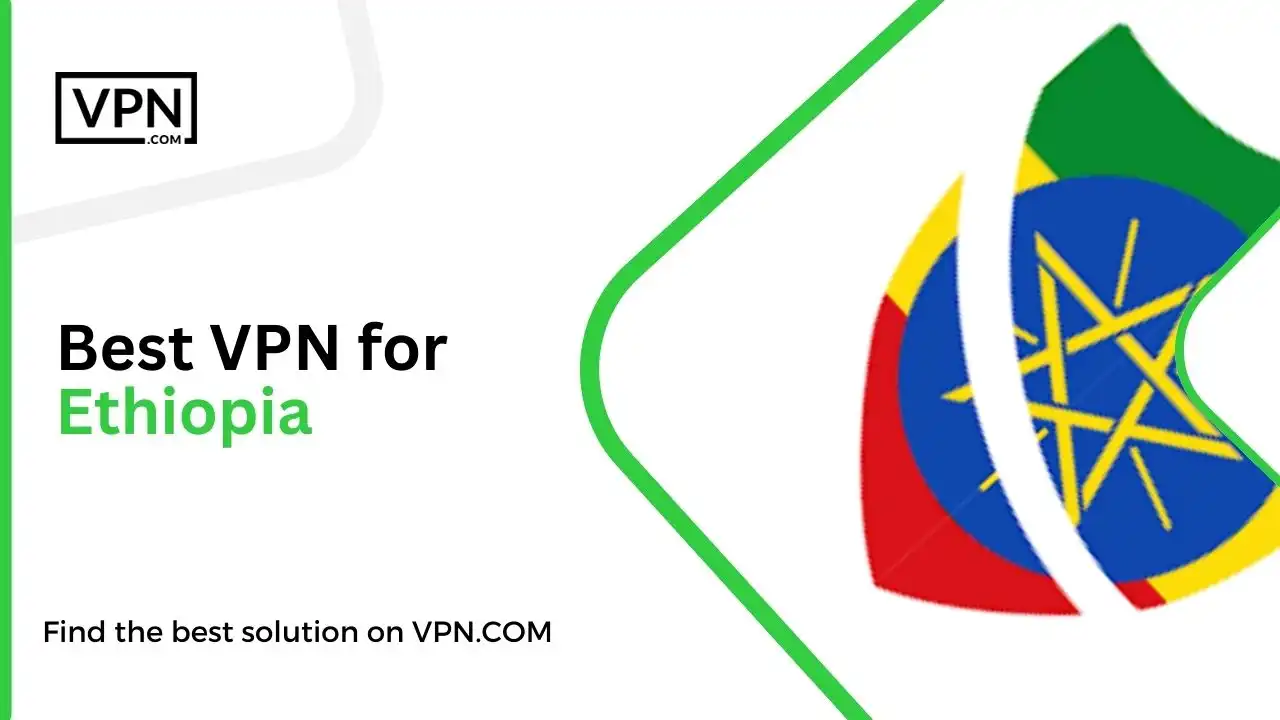
Some of the best VPN for unblocking geo-restricted sites under the strict blackout policies of Ethiopia are as follows:
NordVPN
The major sites facing this issue are Twitter, Facebook, and WhatsApp. You can also stream your favorite Netflix and Disney+ shows with the help of NordVPN. This amazing VPN service allows you to connect up to 6 devices with a single account simultaneously.
Moreover, NordVPN works to protect your device from hackers and malware. This reliable service is due to the vast range of its security features. In addition to DNS breach protection and 256-bit AES encryption, NordVPN provides a kill switch feature and a strong no-log policy.
Moreover, special Double VPN service and Onion Over VPN servers offer you great protection surety. This technology is especially useful in countries with strict blackout policies such as Ethiopia. The latest innovation in NordVPN is NordLocker. It’s a file encryption tool that assists you in saving and sharing files more securely.
NordVPN provides a wide range of apps. They can be used on all operating systems like Mac, Android, Windows, Linus, and Android TV. You can also get a browser extension for your Firefox and Chrome. However, the VPN should be manually installed in the case of routers. For getting further information about the pricing and warranty policy of NordVPN, visit VPN.com.
Surfshark VPN
Surfshark is a budget-friendly VPN provider with an extended network of more than 3,200 servers in over 100+ countries. As this service provides strong access ability, it works best for social media platforms like Facebook and streaming services such as HBO and Netflix. It provides both types of servers; physical and virtual while the option of P2P-optimized services is also available for your ease.
One quality that makes Surfshark unique from its rivals is that it allows it to connect to an unlimited number of devices at a time. This feature makes it an ideal option for families. Surfshark offers 24/7 live chat support, a number of user-friendly apps, and browser extensions. You can be virtually protected in Ethiopia with Surfshark thanks to its amazing 256-bit AES encryption and robust no-log policy. To provide an extra layer of security, DNS leak protection, MultiHop servers, and a kill switch of Surfshark also play an important role.
Surfshark apps can be downloaded on Windows, Mac, iOS, Linux, Android, and Amazon Fire TV/Fire Stick. Extensions for Chrome and Firebox are available and you can also install the routers manually.
ExpressVPN
ExpressVPN, often recommended as an ideal Ethiopia VPN, has its servers working in prominent 94 countries, especially Egypt, Kenya, and South Africa. It provides unlimited bandwidth that promises a fast and consistent internet connection.
That’s why you can easily use this VPN for streaming and P2P networking in Ethiopia. In fact, it works very well with Netflix and social media sites that are banned in Ethiopia like Twitter and Facebook.
Another strong reason for recommending ExpressVPN is its user-friendly nature. It comes with a 24/7 live chat facility and it also provides wonderful apps and browser extensions that can easily be used by a layman. Using it as your Ethiopia VPN ensures seamless access to global content.
As the major concern in Ethiopia while using an Ethiopia VPN service is security, ExpressVPN provides all the facilities: IPv6, 256-bit AES encryption, DNS protection, a kill switch, and security against WebRTC leaks. But it’s not the end.
ExpressVPN doesn’t record any user information that can assist in identifying you and helps you to invest anonymously in Bitcoin, making it a preferred choice for those in Ethiopia.
If you prefer using ExpressVPN as your Ethiopia VPN, you will get access to apps for Windows, iOS, Linux, Mac, and Android. You also get an option to download firmware for routers and extensions for Firebox and Chrome. If you want to get an ExpressVPN subscription at a discounted price, contact VPN.com.
CyberGhost
CyberGhost is known for its massive network of more than 9,000 servers. Although it doesn’t have any servers working in Ethiopia, using an Ethiopia VPN like CyberGhost, you can get access to restricted content via servers operating in almost 90 other countries especially Nigeria, South Africa, and Kenya which is located near Ethiopia.
These servers can easily unlock the banned sites in Ethiopia. The most prominent feature of CyberGhost is its fast speed. As it’s faster than many other VPNs, it offers constant streaming and browsing. Moreover, with an Ethiopia VPN like this, it can unlock famous social media platforms like Instagram, WhatsApp, and Facebook.
Only one CyberGhost subscription lets you connect up to seven devices at a time. You will also enjoy the 24/7 live chat facility and email support. CyberGhost apps are very user-friendly, and by using an Ethiopia VPN like this, you’re protected with 256-bit AES encryption.
IPv6 and DNS protection are prominent features while a kill switch guarantees that your internet traffic is blocked in case the VPN connection drops. On a final note, CyberGhost offers a strict no-log policy ensuring a secure online experience in Ethiopia and beyond.
CyberGhost apps work on desktops (Mac and Windows), mobile phones (iOS and Android), Android TV, and Amazon Fire Stick. Fire TV. Extensions for Firebox and Chrome are also available but you will have to set the Ethiopia VPN manually for Linux and routers. If you want to get a reliable CyberGhost subscription at a very reasonable price, visit VPN.com.
Detailed Steps to Use a VPN in Ethiopia
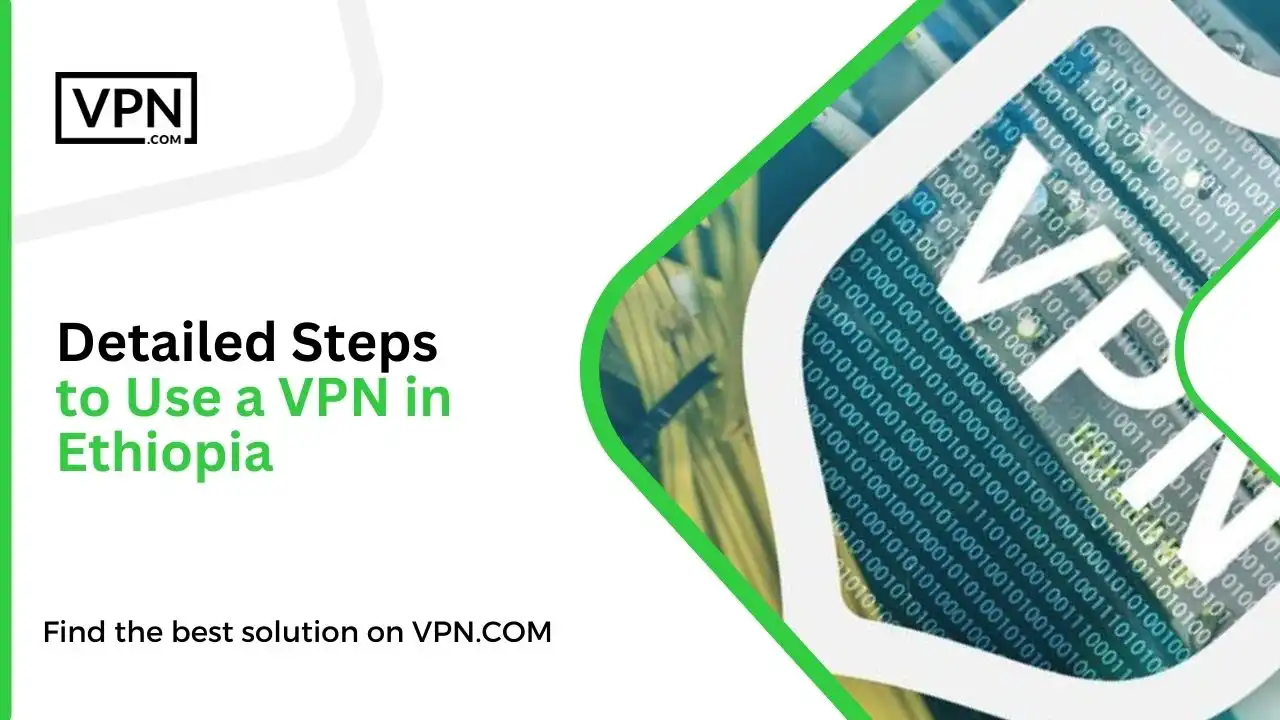
You can use the below-mentioned steps to set up and start using a VPN to get quick access to unlimited content with privacy protection and online safety in Ethiopia.
Step 1. The first step is to find a suitable VPN. So, start by signing up for a robust and dependable VPN service. We suggest you use NordVPN by VPN.com with a 3-minute easy set-up and a 30-day money-back guarantee.
Step 2. The next important step is to download the mobile app of your selected VPN and install it on the device you are using.
Step 3. All top-rated VPNs work after a subscription. So, choose a VPN plan that you think will work best for your network and then handle the payment procedure.
Step 4. After paying successfully for your subscription and getting the membership of your favorite VPN, sign in to the VPN app by inserting the exact information that have used when registering for your VPN.
Step 5. Now connect to a suitable VPN server location on your VPN app.
Step 6: After connecting to the Ethiopia VPN server, you can relax knowing that whatever you do on the Internet, your online activity will completely remain private and unidentified. Your data would be encoded and nobody can track your actual location.
Note: Make sure that the Ethiopia VPN you choose is powerful, dependable, and authentic so that it may be able to handle Step 6 correctly. This information is only mentioned to remind you that not every Ethiopia VPN is strong, capable, and trustworthy enough to provide all the features mentioned above.
Risks associated with Using a Free VPN in Ethiopia
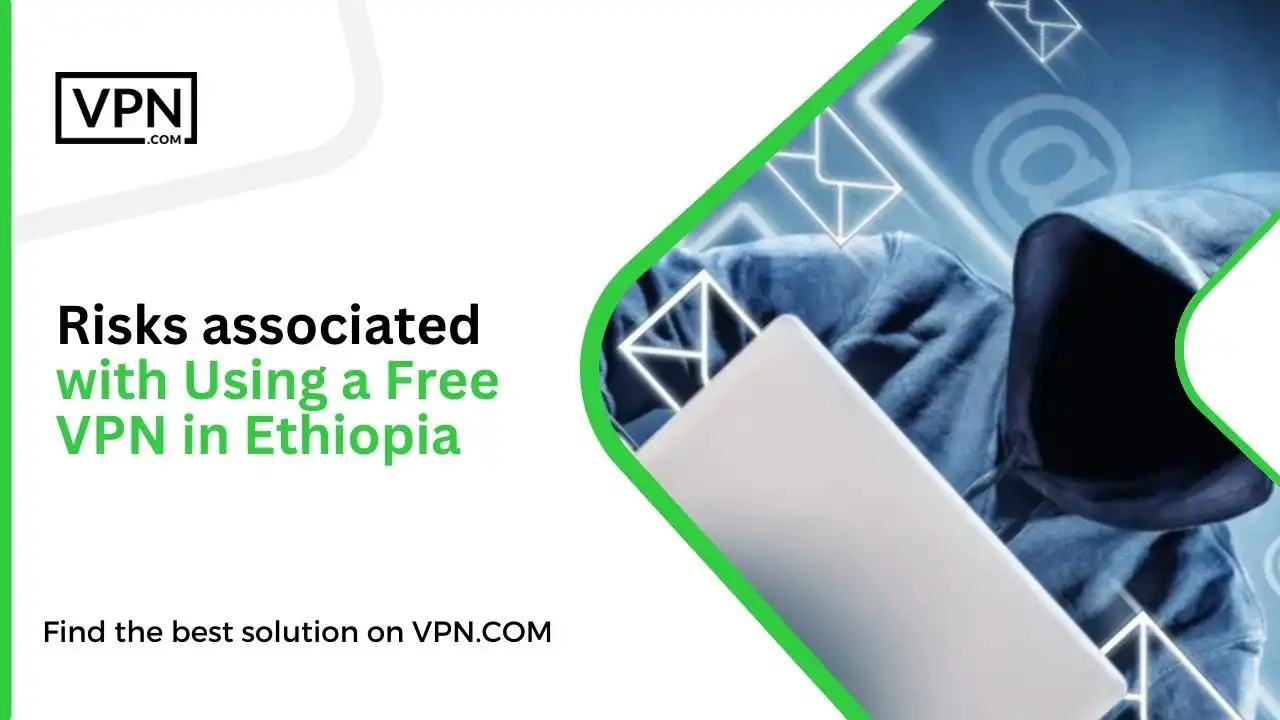
We strongly disagree with using free VPNs, especially in a country having strict internet blackout policies like Ethiopia. For beginners, the standard free Ethiopia VPN has a very narrow range of servers in a few countries. This makes it harder to search for a suitable server for unblocking geo-restricted content. It also indicates that server speeds are slower because of heavy traffic from a massive number of users.
Keep in mind that only a few free VPNs provide servers in Ethiopia or even in Africa. So, if you wish to unblock restrained Ethiopian content from a foreign state, using an Ethiopia VPN, you will have to choose something else. As far as features are concerned, free VPNs provide only limited features. They may not allow you to connect multiple devices to the server at a time and there may also be not any customer support to guide you in case of any problem.
However, the main cause of avoiding a free VPN in Ethiopia is security. Most of the free VPNs don’t provide even the basic security features. For instance, a free VPN may not encrypt your data for safety. So, it’s very risky to use a free VPN in a country like Ethiopia where online surveillance is extremely common. Some low-quality free VPNs record your data and sell it to third parties only for the sake of generating some revenue.
In comparison, the best VPN in Ethiopia like VPN.com secure your confidential information, prevent data breaches, and don’t keep any record of your online activity. These features collectively help you to regulate your digital privacy and secrecy in Ethiopia or any other region of the world.
What if I can’t Use a VPN?
Using a VPN on your PC or mobile ensures online privacy by establishing a private and secure network instead of a public one. It’s better to understand that you are preparing a room for risks if not implementing any VPN on your device. Some of the common risks associated with using a VPN are:
- Any mediator can steal your confidential data or any other important information.
- Without a VPN, there is a risk of giving your authentic data or device into the hands of hackers. VPNs work to hide your original location and data, from being caught by any service or third party on the internet.
- Lack of a VPN may give rise to slow internet speeds while a high-value VPN ensures excellent bandwidth and fast internet speeds.
- Not using a VPN can let the government or other prying eyes track your online activity as VPNs guarantee that your private data cannot be accessed by any mediator, even the government, by establishing a safe and protected network.
Is Your VPN not Working in Ethiopia? Here are Some Quick Fixes
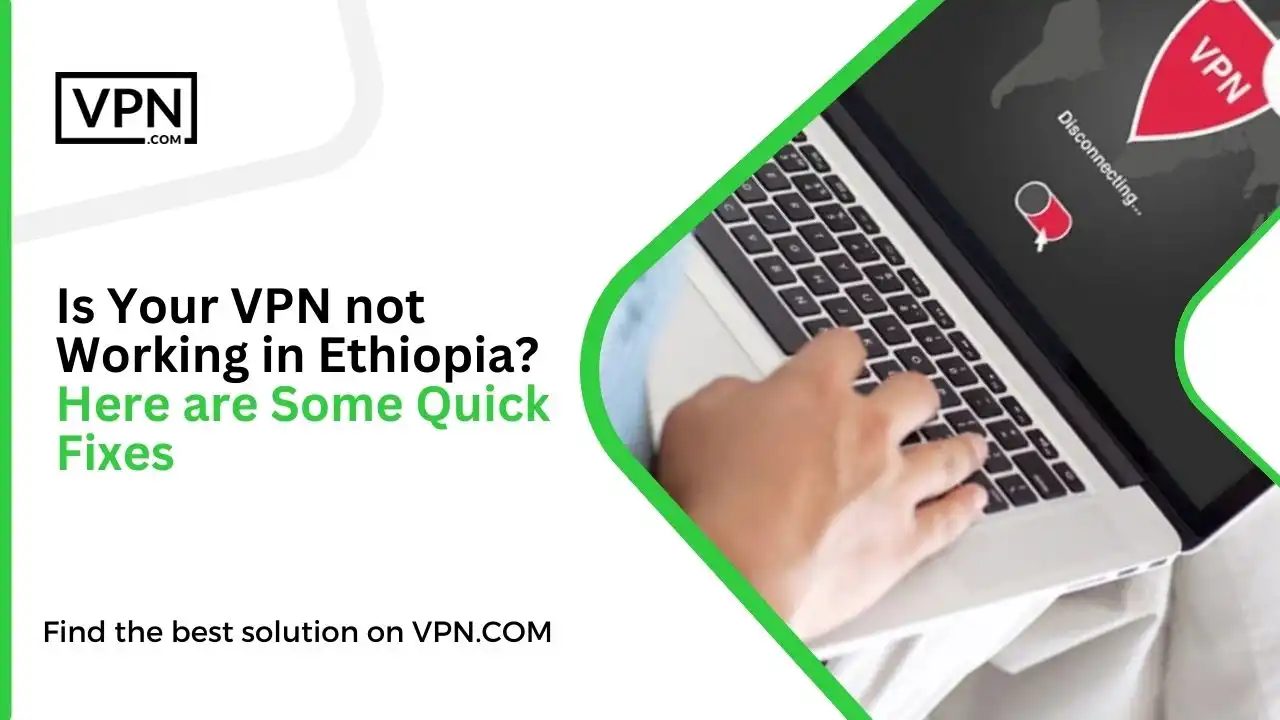
If you detect that your Ethiopia VPN is not working properly, there may be a lot of reasons for this. Sometimes, a few easy solutions mentioned below make a huge difference in fixing your Ethiopia VPN if you have a tough time with it:
- Change your server
- Switch to a better internet connection
- Delete cookies
- Reinstall your VPN app
- Upgrade your VPN membership
- Think of using a better VPN

Get Started w/ NordVPN Today
- Top-rated VPN for OS unknown
- Ultra-fast speed in US in 2024
- Save 69% off with VPN.com Discount
- Plans starting at $2.99/month
- Rated 4.5/5 on Google Play with over 825,000 reviews
- Rated 4.7/5 on Apple App Store from 6,600 users
Conclusion
After knowing about strict censorship in Ethiopia, one can think it’s hard to get a reliable VPN service. But with the help of Ethiopia VPN options, VPN.com has overcome this difficulty by providing 900 reliable VPN choices.
We have provided you with a detailed description of the top Ethiopia VPN in 2023. Now, we hope that it will be easy for you to select the best VPN for unblocking geo-restricted content in Ethiopia, the enemy of the internet.
Customer Reviews for NordVPN: In-Depth Review, Tests, and Stats
![Top Ethiopia VPN in [year]](https://cdn.vpn.com/wp-content/themes/VPN/images/trustpilot/trustpilot_5_star.png)
Connection issues with MLB.TV
May, 2 2023
![Top Ethiopia VPN in [year]](https://cdn.vpn.com/wp-content/themes/VPN/images/trustpilot/trustpilot_5_star.png)
Prompt customer service
May, 6 2023
![Top Ethiopia VPN in [year]](https://cdn.vpn.com/wp-content/themes/VPN/images/trustpilot/trustpilot_5_star.png)
I would highly recommend
December, 15 2023
Detailed Information About Ethiopian VPNs in July 2024
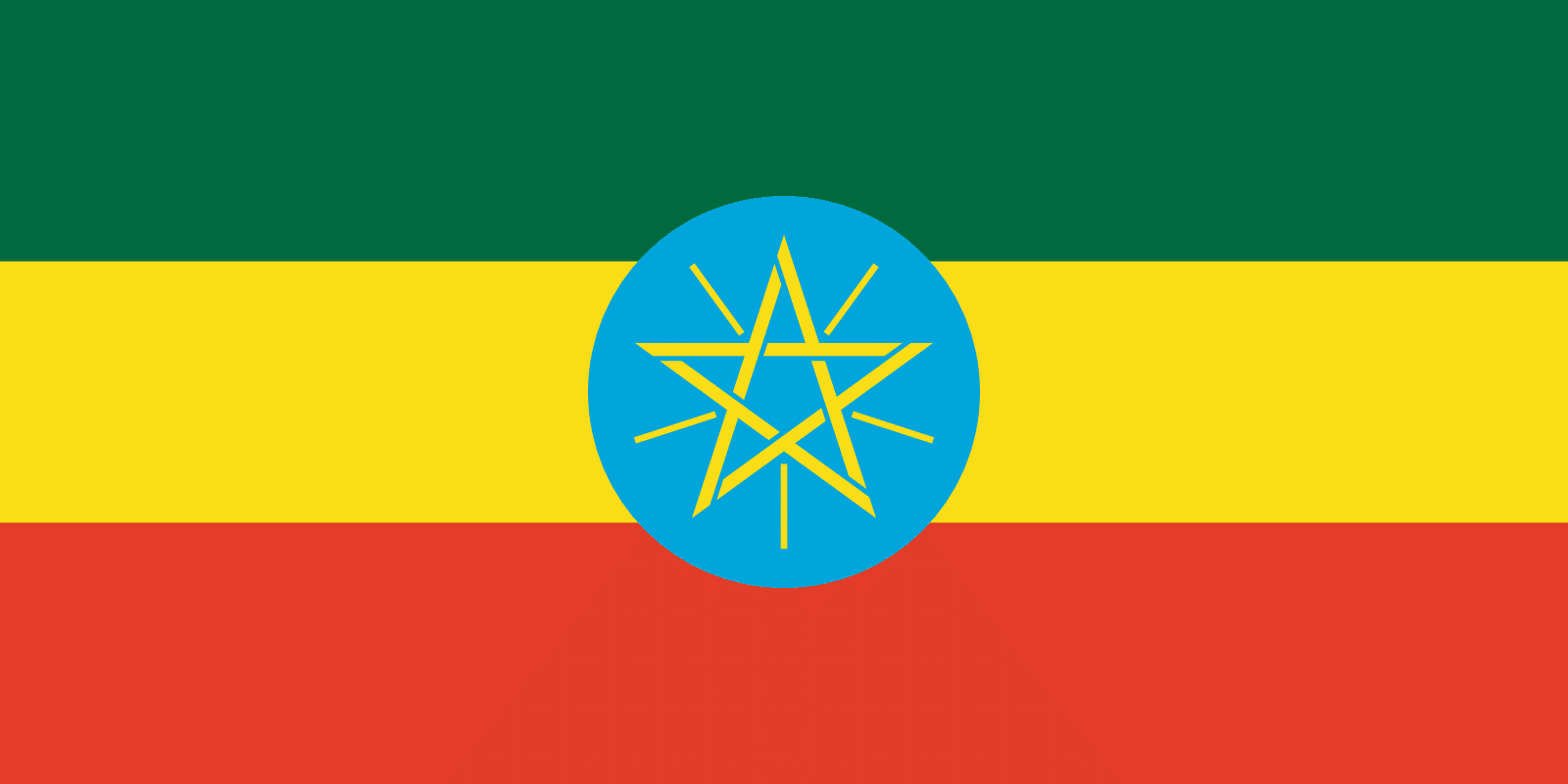
Continent: Africa
Capital: Addis Ababa
Primary Official Language: Amharic
Population: 93,880,000
Domain Extension: .et
Country Details
GDP:
$43,130,000,000.00
Local Google Domain: google.com.et
Government Type:
Federal Republic
# of Mobile Phones:
18000000
# of Mobile Phones Rank
44
Internet Penetration:
11.60%
Global % of Pop w/ Internet Rank
:
167%
Internet Stats
# of Users:
11529327
Users Global Rank
11,529,327
Avg Speed:
Avg Peak Speed:
Above 4Mbps %:
Above 10Mbps %:
Above 15Mbps %:
Censorship Details
Political Sites:
Yes
Social Media Sites:
No
Adult Sites:
No
Pirate Bay:
No
14 Eyes Status:
No
Enemy of the Internet?
Yes
Data & Security
Data Privacy Status:
Data Protection Agency:
Data Retention Required?
Data Retention Period
Data Protection Officers Required?
Not Found
Breach Notifications Required?
Not Found
Financial Stats
Credit Card Payment %:
Prepaid Card Payment %:
Mobile Payment %
Bank Transfer Payment %
E-Wallet Payment %
Travel Details
Address:
3506 International Drive, NW 20008
Email:
[email protected]
Phone
(202)364-1200
# of Global Embassy Consulates:
45

![Top Ethiopia VPN in [year]](https://cdn.vpn.com/wp-content/themes/VPN/images/icons/payment-methods/mastercard.png)
![Top Ethiopia VPN in [year]](https://cdn.vpn.com/wp-content/themes/VPN/images/icons/payment-methods/american_express.png)
![Top Ethiopia VPN in [year]](https://cdn.vpn.com/wp-content/themes/VPN/images/icons/payment-methods/discover.png)

